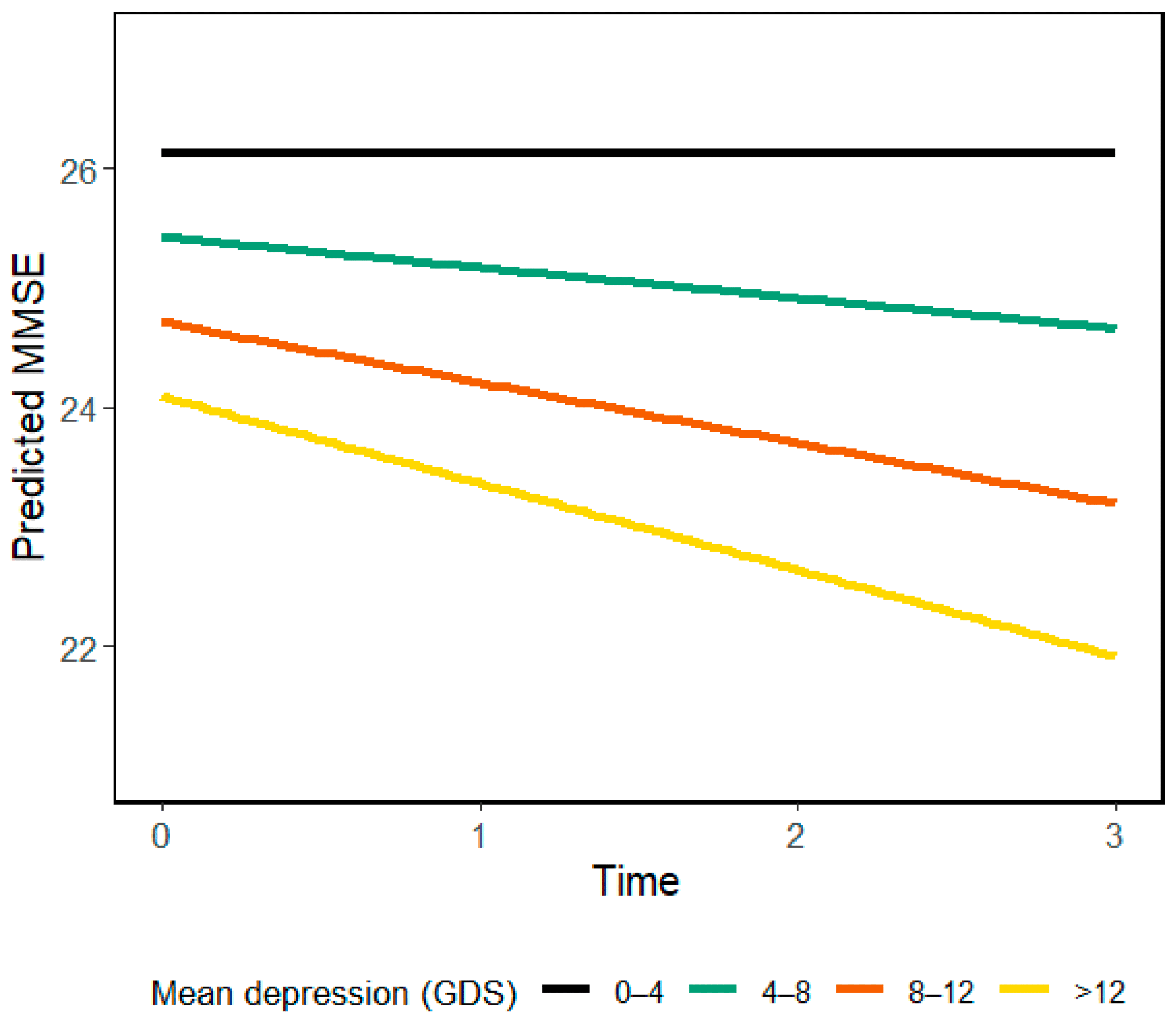
Temporal Associations Between Cognitive Impairment and Depression in Older Adults: A Longitudinal Analysis
- Post by: Alper Idrisoglu
- 12 July, 2025
- No Comment
Abstract
Depression and cognitive impairment frequently co-occur in older adults, but their temporal relationship remains unclear. While depression is often considered a risk factor for cognitive decline, evidence is mixed, particularly in individuals with mild cognitive impairment or early dementia (MCI/ED). This study analyzed longitudinal data from 1086 participants (M = 74.49, SD = 7.24) in the SMART4MD clinical trial, conducted in Spain and Sweden over 18 months, with assessments every six months. Cognitive impairment was measured using the Mini-Mental State Examination, and depression was assessed with the Geriatric Depression Scale-15. Findings revealed a concurrent association between depressive symptoms and cognitive impairment. In regression mixed analysis, depression levels predicted increased cognitive decline over time, but no evidence was found for cognitive impairment predicting future depression. These associations were confirmed using a bivariate latent growth curve model with cross-lagged paths, which revealed early but attenuating bidirectional effects between depression and cognition. These results highlight depression as a medium-term risk factor for cognitive decline, emphasizing the importance of addressing depressive symptoms to mitigate cognitive deterioration in MCI/ED populations.
Keywords:
aging; dementia; mild cognitive impairment; depression
DOI: https://doi.org/10.3390/ejihpe15070132
